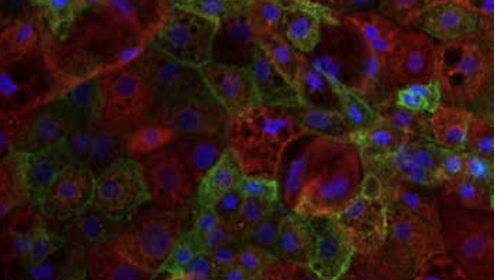
DefiniGEN Ltd., and Atelerix Ltd. have successfully shipped in vitro liver models from the UK to the US without freezing them thus preventing cell damage and loss-of function.
The agreement between the British companies combines DefiniGEN’s iPSC hepatocytes (Opti-Heps) with Atelerix’s hydrogel preservation technology, which prevents loss of function and enables even sensitive samples to remain stable at ambient temperatures for up to two weeks.
Freezing damage and loss of function of freezed or cryopreserved cell is a major challenge blocking the adoption of organoid cell and cell-based testing of pharmaceuticals. According to CryoLogix Ltd, this year’s winner of the SLAS Europe Best Product awards, today, cells are stored frozen in suspension and must be cultured for days or weeks before they can be used in an experiment. As a result, a cell biologist has to devote significant time to cell preparation and the routine maintenance of cell lines rather than other valuable operations.
Atelerix Ltd. has developed an natrium-alginate encapsulation technology that protects living cells from stress during transport, protecting them for at least 3-5 days. DefiniGEN’s iPSC-derived Wild-Type (WT) hepatocytes remain functionally stable over a prolonged period of time in culture, making them ideal for drug discovery, drug metabolism, and may be utilized in toxicology-related research. They also express key hepatocyte markers at similar levels to primary human hepatocytes, making them an effective model for in vitro studies
In vitro liver models are lab-created liver cells or tissues that mimic the natural behaviour of the liver in the human body. These models allow scientists to study liver functions and diseases while reducing the need to use live animals. Additionally, these models provide a controlled environment for testing the effects of drugs on the liver, supporting the development of safer and more effective medications. They can also speed up the drug development process, as researchers can quickly assess drug toxicity and metabolism information.
Samples are shipped fresh to customers in assay ready plates for screening and analysis, enhancing the quality of functional assays. This saves research time, as cells do not need to be thawed, and avoids the need for cold chain logistics. According to Heidi Kingdon Jones, CBO of DefiniGEN, “by combining DefiniGEN’s innovative iPSC-derived hepatocyte models with Atelerix’s revolutionary preservation technology, we are not only pushing the boundaries of scientific research. This collaboration marks an industry first in R&D, enabling higher quality functional assays without the reliance on cold chain logistics.”
Alastair Carrington, CEO of Atelerix, added: “Our technology for shelf-stable science solutions has proven to be a game-changer in the field of biopreservation. This partnership demonstrates the efficacy of Atelerix’s preservation technology, exceeding expectations with what is deemed one of the most sensitive and often problematic cell types, to ship fresh and still maintain functionality. Working alongside DefiniGEN, we are excited to be at the forefront of reducing the industry’s carbon footprint, improving the logistics of biological materials while moving towards reducing or even replacing the use of animals in drug testing.”
- SEO Powered Content & PR Distribution. Get Amplified Today.
- PlatoData.Network Vertical Generative Ai. Empower Yourself. Access Here.
- PlatoAiStream. Web3 Intelligence. Knowledge Amplified. Access Here.
- PlatoESG. Carbon, CleanTech, Energy, Environment, Solar, Waste Management. Access Here.
- PlatoHealth. Biotech and Clinical Trials Intelligence. Access Here.
- Source: https://european-biotechnology.com/up-to-date/latest-news/news/definigen-and-atelerix-prevent-freezing-damage-in-cell-models.html
